



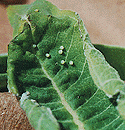 |
Life cycle begins for the monarch butterfly as the adult, female monach lays her eggs on the underside of a milkweed leaf. The egg is speck sized and yellowish green in color. |
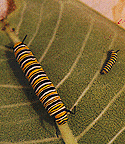 |
Within six day, the larva or caterpillar hatches and begins to eat. The new caterpillars will grow at varying rates. |
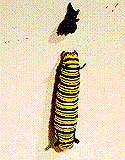 |
It eats so much milkweed that its skin splits open. This process is called molting. The caterpillar will molt four different times, each time emerging with a new skin. |
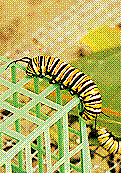 |
Two weeks later, now two inches and 3,000 times its birthweight, the two-week old caterpillar gets ready for yet another change. |
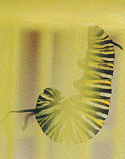 |
With silk that comes from a gland below its jaw, the mature caterpillar spins a silk button on the underside of an object, then hangs from it by its back legs. |
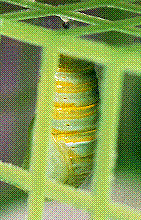 |
Hours pass. The skin spilts again. A blackhook reaches out. It grabs the button. Meanwhile, the caterpillar's legs, mouth, and antennae start falling away along with the skin. |
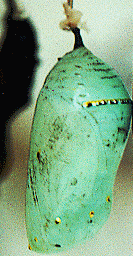 |
What remains is the chrysalis or pupa. |
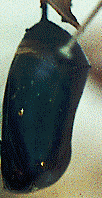 |
In about ten days, the chrysalis darkens and eventually becomes clear revealing the wings. |
 |
Soon after the butterfly hatches. Hanging from the wrapper, the new butterfly must pump fluid into its still crumpled wings, then allows them to dry. In a few hours a beautiful monarch butterfly takes flight. |






